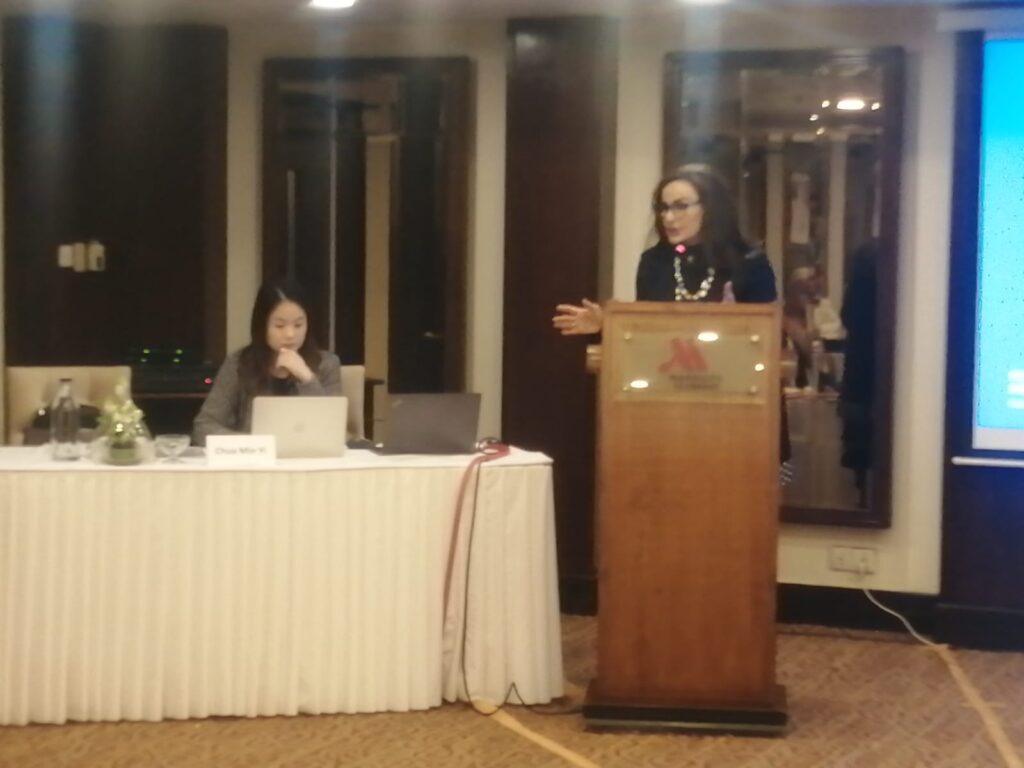
Pakistan’s Course in the Midst of Global Geopolitical Shifts at FES lab
Islamabad :— At the National Strategy Lab’s inaugural session, hosted by the Friedrich Ebert Stiftung (FES), Senator Sherry Rehman delivered a comprehensive keynote address on “Pakistan in the New Geopolitics of Asia,” meticulously outlining the challenges and strategic imperatives for Pakistan in a rapidly evolving global context.
Senator Rehman opened her address by highlighting the shifting global landscape, stating, “The ground is shifting below our feet as we witness megatrends that are reshaping the world. It is crucial for every entity to budget and plan for competing scenarios while keeping in mind the metatrends driving these changes, particularly climate change.”
She emphasized that climate change is the overarching trend that impacts how countries interact, describing it as a “problem without passports” that requires unprecedented international collaboration. In contrast, she warned that the world is seeing the weaponization of both technology and resources like water, signaling a failure of multilateralism.
Senator Rehman offered a candid analysis of global power dynamics, remarking on the rise of geopolitical blocs, the collapse of traditional hierarchies, and the ripple effects of engaging with global powers. She noted that while globalization once promised shared surpluses in trade and technology, today’s fractured world brings greater risks.
“Geopolitical rivalries are pushing the world towards unpredictability.” Referring to ongoing conflicts, she stated, “We haven’t seen this many conflicts since 1945, and the consequences will shape everything from energy pricing to global trade.”
Senator Rehman stressed that while many economies, such as the ASEAN bloc, offer a beacon of hope, South Asia remains buckled under its own challenges, with Pakistan needing to pivot and adapt within this fast-changing international order.
Drawing attention to the broader regional context, she pointed out that Asia is home to over 4.7 billion people, representing 60% of the global population, a growing share of global GDP but also one of the largest spenders on military capabilities.
Senator Rehman also shared her observations from her recent visit to China, where she saw China shifting its growth lens toward sustainability following the country’s Third Plenum. She praised China’s progress under its Belt and Road Initiative, but also cautioned about the inherent risks of strategies for hedging in an uncertain geopolitical environment.
Returning to Pakistan’s specific challenges, Senator Rehman highlighted the urgent need for better governance and strategic planning to leverage regional opportunities like the China-Pakistan Economic Corridor (CPEC). She pointed out that while China has invested $297 billion in energy sector in Pakistan and SEZs can create over 600,000 jobs, the country still struggles with governance issues in energy distribution and grid management.
She drew attention to Pakistan’s energy transition, highlighting the country’s rise as the third-largest importer of Chinese solar panels. “Pakistan is going through a solar rooftop revolution, and by 2030, 60% of our energy should be from renewable energy sources, according to our NDCs,” she noted.
At the same time, Senator Rehman didn’t shy away from acknowledging Pakistan’s deep vulnerabilities, pointing out that it is the 5th most vulnerable country to climate change despite contributing less than 1% to global emissions. She stressed the need for unlocking climate finance, particularly given Pakistan’s estimated need of $348 billion for a comprehensive response to climate and development challenges by 2030, according to World Bank. This consists of $152bn for adaptation and resilience and $196bn for deep de-carbonisation.
With water scarcity looming and Pakistan predicted to be water scarce by 2025, Senator Rehman called for urgent attention to shared river basins between India and Pakistan, and the high risks posed by glacial melt and extreme weather events. Senator Rehman emphasized, ‘These environmental crises require collaborative management and sustainable solutions, like Pakistan’s pioneering Delta Blue Project, the world’s largest reclamation initiative aimed at restoring mangroves as natural disaster buffers. It is able to monetise carbon sinks while adding green jobs and restoring wetlands.
Senator Rehman concluded her remarks by highlighting Pakistan’s complex geopolitical position, noting that the country’s future lies looking beyond South Asia if India is holding back connectivity dividends, and Afghanistan remains unstable. Our options are tied to our governance choices, and we must focus on building connectivity and capitalizing on sectors like energy and IT”, she stated.
With international public finance faltering, she urged Pakistan to creatively explore alternative solutions, especially through climate finance and sustainable development, while reinforcing ties with both the US and China. “Our regional security environment may impact our ties with immediate neighbours but Pakistan can seek other economic partners if we enhance our governance on energy and infrastructure, environment and social sectors ,” she concluded “There are clear gains in the renewable sector which will unlock cheaper and cleaner energy because no country can be wealthy without assured energy supplies. Our encounter with the global commodity market on importing energy has not been the best experience, so we should shift gears towards the kind of energy that is not priced at high international commodity rates but priced locally and treated as a sustainable technology. “
The National Strategy Lab’s inaugral session was attended by leading policymakers, strategists, and stakeholders, with Senator Rehman’s keynote address setting the tone for critical discussions on Pakistan’s future in the new geopolitics of Asia.
